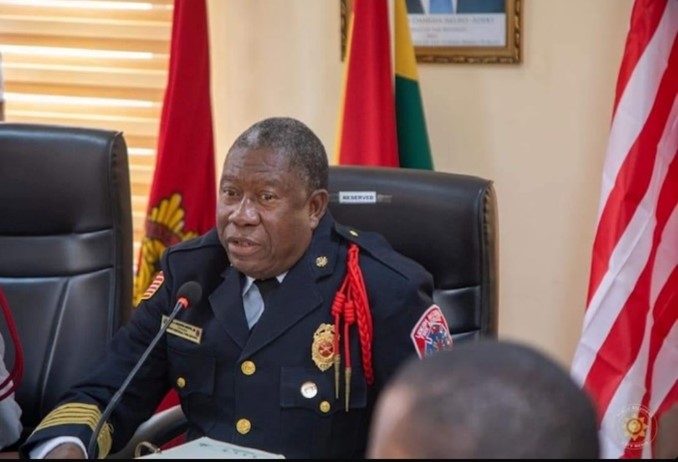The Liberia National Fire and Rescue Service (LNFRS) finds itself embroiled in a significant corruption scandal involving the disappearance of gasoline coupons worth US$650,000. This incident has sparked widespread concern and fueled growing distrust in the Boakai administration’s commitment to transparency and accountability. The missing coupons, unaccounted for and lacking any discernible audit trail, raise serious questions about the LNFRS’s internal controls and the possibility of a deliberate cover-up. This scandal comes amid a backdrop of increasing allegations of corruption within the government, further eroding public trust and raising questions about the administration’s ability to effectively govern. The incident has ignited a heated public discourse, with media commentators expressing frustration over the perceived pervasiveness of corruption within the government.
The gravity of the situation is underscored by the reactions of various commentators and public figures. Gamordeh Clinton, a prominent voice in the public sphere, expresses deep concern over the apparent disregard for both the rule of law and the principles of good governance. He laments the prevalence of corruption and constitutional violations, suggesting a systemic failure of leadership to uphold its responsibilities. This perception of widespread corruption and disregard for legal norms poses a serious threat to the legitimacy of the government and its ability to maintain public trust. The apparent lack of accountability exacerbates these concerns, further fueling public disillusionment.
Paul Kennedy, another influential commentator, calls for immediate action to address the LNFRS scandal and prevent future occurrences. He advocates for the establishment of an internal investigation committee to thoroughly examine the circumstances surrounding the missing coupons. Furthermore, he recommends involving external bodies like the Liberia Anti-Corruption Commission (LACC) and the Ministry of Justice in the investigation to ensure impartiality and enhance public confidence in the process. This call for external oversight reflects a desire for greater transparency and a more robust approach to combating corruption within government institutions. Kennedy’s proposals aim to restore public trust and demonstrate a commitment to holding those responsible accountable.
Adding to the complexity of the situation, former Representative Moses Acarous Gray suggests that the problems plaguing the LNFRS are not isolated incidents but rather indicative of a broader pattern of corruption within the executive branch. He asserts that scandals are a daily occurrence, implicating entities like the National Oil Company of Liberia (NOCAL) and the National Road Fund (NRF). This portrayal of widespread corruption within the government paints a bleak picture of the current state of affairs and raises serious questions about the administration’s ability to address these systemic issues. Gray’s comments highlight the urgent need for comprehensive reforms to address the root causes of corruption and restore public confidence in the government.
The response from the LNFRS Director, G. Warsuwah Barvoul Sr., further complicates the matter. His refusal to comment on the scandal fuels speculation and raises concerns about the government’s willingness to conduct a thorough and impartial investigation. This silence could be interpreted as a lack of transparency and an attempt to avoid accountability, further eroding public trust. The director’s unwillingness to address the allegations directly underscores the challenges facing those seeking to uncover the truth and hold those responsible accountable.
The US$650,000 gasoline coupon scandal at the LNFRS serves as a microcosm of the larger corruption challenges facing Liberia. The missing coupons, the lack of transparency, and the director’s silence all contribute to a growing perception of impunity within the government. This perception, coupled with allegations of widespread corruption across various government entities, underscores the urgent need for comprehensive reforms and a renewed commitment to accountability. The government must take decisive action to address these issues and restore public trust before the situation further deteriorates. The future of Liberia’s governance hinges on the ability of its leaders to effectively address these systemic challenges and demonstrate a genuine commitment to transparency and accountability. Failure to do so risks undermining the foundations of democratic governance and further eroding public confidence in the government’s ability to serve the interests of its citizens.


